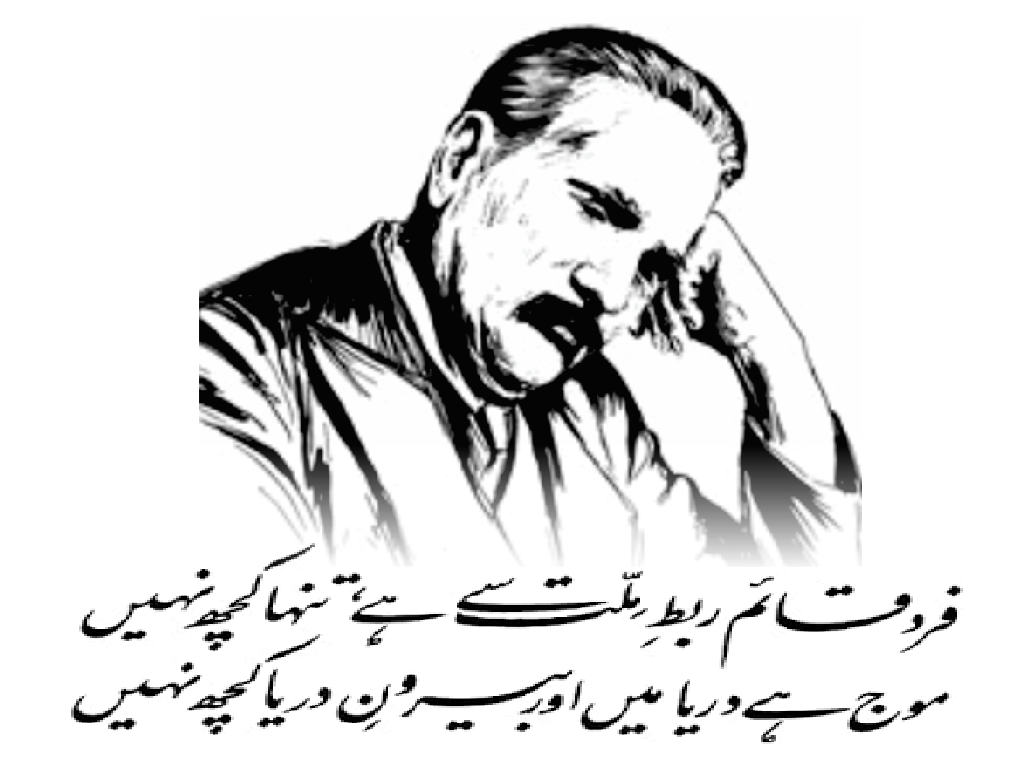Iqbal’s Message for Youth
Shahzad Masood Roomi
Dr. Muhammad Iqbal, also known as Allama Iqbal, was a renowned poet, philosopher, and thinker of the Indian subcontinent. His profound and insightful poetry, deeply rooted in Islamic spirituality and universal human values, has had a profound impact on generations of readers and continues to resonate with people around the world. Iqbal’s message, particularly for youth, is one of self-discovery, empowerment, and social transformation.
Iqbal viewed youth as the driving force of progress and societal change hence it is no surprise that youth is the target of his message for call of action. He believed that young people possess immense potential to shape their own destinies and contribute meaningfully to the world around them. His poetry is replete with exhortations for youth to break free from the shackles of conformity, embrace self-reliance, and pursue their aspirations with unwavering determination. He believed that for youth to excel, the first and foremost thing they must do is to get out of their comfort zones both mentally and physically. Only then, Iqbal believed, they can be source of native ideas to bring around a lasting change.
Among his works for youth, one of Iqbal’s most powerful messages for youth is the concept of “Khudi” or “self.” It is an invitation of rediscovery for young
Iqbal’s concept of Khudi is not merely about personal ambition or self-aggrandizement. It is about understanding one’s place in the universe, recognizing one’s unique talents and abilities, and utilizing them for the betterment of oneself and society. Khudi is not a static concept; it is a dynamic process of self-discovery and growth.
Iqbal’s relevance in present times and his message being a guiding light for contemporary youth is evident from the fact that today’s world is being led by individuals who recognized and embraced their individuality and developed it.
Iqbal’s message for youth remains as relevant today as it was in his own time. In an era of globalization, rapid technological advancements, and societal complexities, young people face unprecedented challenges and opportunities. Iqbal’s poetry offers a guiding light, illuminating the path towards self-discovery, personal excellence, and meaningful engagement with the world. If we look at modern age developments in business and technological world, we see the world is being shaped by inventions of individuals who excelled on their gifted talents and didn’t rely on educational institutions. They have created business and technological empires through their higher and unique ideas alone.
Iqbal have used the Eagle (Shaheen) as a metaphor in his message to young minds. He says if youth wants to see its true potential, they must have ideas as high as flight of Shaheen.
In a world often consumed by materialism and instant gratification, Iqbal’s emphasis on self-reliance, intellectual pursuit, and moral integrity provides a refreshing perspective. His call for social justice, human dignity, and the pursuit of knowledge resonates deeply with the aspirations of contemporary youth.
Iqbal’s poetry encourages youth to embark on a journey of self-discovery, to explore their inner potential, and to cultivate the qualities necessary for personal excellence. He reminds them that true fulfillment lies not in external achievements but in the development of a strong, resilient, and compassionate self.
Allama Iqbal’s legacy extends far beyond his literary works. His profound insights into human nature, his unwavering faith in humanity’s potential, and his unwavering commitment to social justice continue to inspire and empower individuals around the world. His message for youth, particularly his emphasis on self-discovery, self-reliance, and social responsibility, remains as relevant today as it was in his own time. Iqbal’s poetry serves as a beacon of hope and inspiration, urging youth to embrace their potential, contribute meaningfully to society, and strive for a better future for all.
